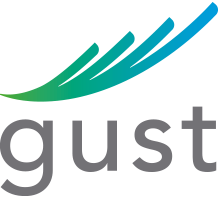
Global Accelerator Report 2016
#GlobalAcceleratorReport
Introduction
Over the last few years, accelerators and the programs they operate have become key players
within startup ecosystems, helping thousands of founders build and grow innovative businesses
in today's "new economy." Accelerators have become far more than simple business-service
providers or investment vehicles, instead emerging as invaluable operators within public and
private spheres. They bring together entrepreneurs, investors, public entities, and
corporations with the common goal of helping innovative businesses quickly take root.
Policymakers and other actors in the startup community should understand the essential role of
accelerators within the startup ecosystem, as proper incentivization of accelerators has the potential to
effectively facilitate the cultivation and cross-pollination of startups.
The Global Accelerator Report 2016 provides an exclusive inside look
at accelerator programs worldwide.
This report is a follow-up on the
2015 Accelerator Report
and aims to explain how the accelerator industry is evolving in the region,
how accelerators support their activities, and how they impact local and regional
tech startup ecosystems.
Please note that many organizations supporting entrepreneurship, such as incubators and
venture builders, have not been included in the scope of this report, even if they share
some common traits with accelerators.
Accelerator — an evolving definition:
The acceleration industry is evolving rapidly, and it is becoming increasingly
difficult to precisely define what an accelerator is. As new models emerge,
the term "accelerator" describes an increasingly diverse set of programs and organizations, and,
often, the lines that distinguish accelerators from similar institutions, like incubators and
early-stage funds, become blurred. For the purposes of this report, accelerators can be
defined according to Miller and Bound (2011), and share these common traits:
1) An application process that is open to all, yet highly competitive.
2) Possible provision of pre-seed investment (grant or equity).
3) A focus on small teams instead of individual founders.
4) Time-limited support comprising programmed events and intensive mentoring.
5) Cohorts or ‘classes’ of startups rather than individual companies.
Total investment worldwide
US$206,740,005
in 11,305 startups
by 579 accelerator programs
-
Latin America
-
US$24,186,330 invested in 1,795 startups from 82 accelerators
-
Most cash invested:
Start-up Chile
Most startups accelerated:
Start-up Chile
-
Asia & Oceania
-
US$17,577,400 invested in 1,368 startups from 76 accelerators
-
Most cash invested:
SOSV
Most startups accelerated:
MaGIC Global Accelerator Program (GAP)
-
Middle East & Africa
-
US$7,587,738 invested in 1,172 startups from 51 accelerators
-
Most cash invested:
Techstars
Most startups accelerated:
Etohum
-
Europe
-
US$50,124,145 invested in 3,701 startups from 193 accelerators
-
Most cash invested:
Techstars Europe
Most startups accelerated:
MassChallenge Europe
-
USA & Canada
-
US$107,264,392 invested in 3,269 startups from 178 accelerators
-
Most cash invested:
500 Startups
Most startups accelerated:
500 Startups

-
Investments by region
-
US & Canada
US$107,264,392
-
Europe
US$50,124,145
-
Latin America
US$24,186,330
-
Asia & Oceania
US$17,577,400
-
Middle East & Africa
US$7,587,738
-
-
Startups accelerated by region
-
Europe
3,701
-
USA & Canada
3,269
-
Latin America
1,795
-
Asia & Oceania
1,368
-
Middle East & Africa
1,172
-
178 Exits reported by 77 accelerators in 2016
TYPE OF ORGANIZATION
Are you a for-profit organization?
64.5% of accelerators around the world claim to be for-profit ventures— similar to what was reported in 2015 (66%). Typically, for-profit accelerators are funded with private capital from investors aiming to generate long-term profit. This is primarily accomplished by the appreciation of their equity in startups, but also by providing business-support services and by offering “acceleration-as-a-service” to large corporations.
Not-for-profit accelerators support industries that provide a specific public benefit, such as Healthtech and Edtech. Others aim to boost entrepreneurship in their communities. They may also focus on providing new opportunities for minority groups or look to boost economic activity in a given region. These programs and the organizations operating them may be either privately or publicly funded. Generally, these programs do not take equity and instead offer free support.
THE ACCELERATOR BUSINESS MODEL
Monetization through startup exits
-
-
2015
-
-
2016
In the 2015 Report, a majority of accelerators globally, with the exception of those in Africa and the Middle East, indicated that they intended to follow the traditional "cash-for-equity" model, first established in 2005 by Y Combinator, which involves investing a small amount of seed money in a startup — around $25,000 on average — in exchange for equity (usually between 5% and 10%). Increasingly, this model is becoming rare, as more accelerators reconsider their general outlook. Most likely, the small number of exits — 178 reported in 2016 — has proven insufficient in funding their operations. Consequently, many accelerators around the world no longer rely on generating revenue from exits. Globally, 59.4% of accelerators take equity in startups and 32.7% predict that they will generate revenue from exits in the future – a significant shift from last year.
% using alternative monetization sources
-
-
2015
-
-
2016
Accelerators have relied on, and continue to explore, new models of revenue generation. 90.4% of accelerators plan to increase their revenue in the medium to long term by incorporating alternative revenue models in addition to exits. These include charging for mentorship, subletting office space, hosting events, and working with corporations.
Monetization through corporations
-
-
2015
-
-
2016
As we predicted last year, the relationships between accelerators and
corporations have grown in strength and frequency.
52.1% of accelerators are at least partially funded by a corporation,
and 67.2% aim to generate future revenue from
services sold to corporations.
Corporate revenue generated by accelerators came from two main sources in 2016:
corporate partnerships, generally in the form of a white-labeled
or jointly-run acceleration program created by the accelerator on behalf of the corporation,
and corporate sponsorship packages sold by accelerators.
GLOBAL ACCELERATOR EQUITY AND INVESTMENT MODEL
Do you invest cash?
Accelerators that do not invest cash generally focus on providing services and resources such as workshops, mentorship, coworking space, and connections.
Do you take equity from participating companies?
What range?
-
Equity free
41%
-
Between 1% and 3%
7%
-
Between 4% and 6%
22%
-
Between 7% and 10%
18%
-
Over 10%
4%
-
Undisclosed
7%
(Global average)
MAIN TRENDS
In 2016, the acceleration model has continued to grow and evolve. Four major trends can be identified.
Trend 1: Growing ties between accelerators & corporations
Corporate funding
“Corporations are increasingly engaging in a more meaningful way with startup founders and the broader entrepreneurial ecosystem,” said Bobby Franklin, President and CEO of NVCA. The number of venture capital firms (VCs) has grown by 15.5% each year between 2011 and 2015, according to data from CB Insights. This growth in corporate engagement in the startup ecosystem is beginning to spill over into the accelerator industry.
Corporate revenue in 2017
As the accelerator industry matures, we are seeing increased collaboration between accelerators and corporations. “On the one hand, this is because corporations are discovering that accelerators are an efficient and effective way to engage with startups. On the other hand, accelerators understand that corporations can help them fund operations in the short-to-medium term (exits are often far out). They improve the prospects of their portfolio companies that can potentially sell to, raise funds from, or be acquired by these corporations," said Miklos Grof, co-author of this report.
There is a growing trend for corporations to outsource their acceleration programs due to their limited skills in accelerating startups. Some voices in the startup ecosystem, notably high-profile venture capitalist Fred Wilson, welcome this development. He believes, “Corporations should BUY companies. Investing in companies makes no sense,” as cited by CB Insights.
Corporations can benefit from accelerators in 5 different ways:
- Launching a program quickly and cost-effectively: by partnering with accelerators, corporations can quickly enter the acceleration business and adopt best practices developed by accelerators over years of operation.
- Enhancing deal flow: by accessing an accelerator’s immense marketing power and network.
- Staying up to date: by having access to an accelerator’s deal flow, they receive insight into the innovation pipeline in their market. Corporations have learned that competitors now often come from the startup world.
- Building an innovative corporate culture: by placing their corporate executives as mentors in the accelerator or by enabling their own corporate executives to innovate. In the latter case, the new product could be placed into a separate company that is then accelerated by the accelerator.
- Building a more innovative brand: by aligning with accelerators and their startups which have become symbols of innovation in the eyes of the public.
Examples of accelerators that are aligning themselves with corporations include: Techstars, Startupbootcamp, and NUMA.
Trend 2: Verticalization
Are your program(s) focused on specific verticals?
Accelerator verticalization is driven in part by the following:
- Establishing core competence: accelerators have realized that it is hard to attract and choose high potential startups when they are a 'jack-of-all-trades'.
- Responding to corporate clients: the expertise of a corporate sponsor or partner is confined to the industry in which it operates.
- Brand building: in order to offer more "concentrated" value to startups and attract the best founders, accelerators need to position themselves in their ecosystems and attract more experienced mentors and investors.
Continuing the trend identified in the 2015 report, the global acceleration landscape is increasingly moving towards verticalization, with 57.5% of accelerators running programs focused on a particular industry or sector niche. This trend is likely to continue as regional startup ecosystems continue to mature. This is a very positive development because verticalized accelerators generally bring more value to startups through more qualified acceleration teams, larger pools of quality mentors within the industry, and close corporate ties to related markets.
Trend 3: Expansion
Do you plan to expand to new locations in 2017?
After reaching a certain level of maturity, expansion becomes a natural next step for well-established accelerators. This growth comes in three forms: by opening new vertical programs, by launching new programs in different cities, or by launching programs internationally. Some examples include MassChallenge, Microsoft Accelerator, Techstars, and Fledge — four US accelerators that also operate programs abroad.
According to Sebastien Brunet, co-author of this report, “There are different reasons for which an accelerator decides to go abroad: to help their startup portfolios expand to new markets by providing softlanding services, to source innovative startups from new regions, to increase the quality of their deal flow, and to reinforce their brands on an international level.”
International expansion usually happens in two ways:
- By merging or acquiring an already existing accelerator in a new country.
- By partnering with a local player, for example a VC fund.
Trend 4: Blurring lines
Traditionally, the norm for an accelerator was to accelerate 10-30 startups per year by investing $20,000-$50,000 in each business.
Today, accelerators often operate across the investment life cycle in an attempt to fill the gaps in local startup ecosystems and cater to potential financial partners and sponsors. These include governments, universities, and corporations. New operating models have evolved immensly, thereby blurring the lines between accelerators, incubators, and early-stage funds. Of the 579 accelerator programs included in this report, 35.9% described themselves as a combined accelerator, incubator, venture capital fund, and/or angel group.
-
Top 10 countries by investment
-

United States
US$105,544,072
-

United Kingdom
US$18,000,573
-

Chile
US$11,323,555
-

Spain
US$7,857,851
-

Germany
US$6,775,534
-

Mexico
US$5,166,931
-

Brazil
US$4,331,701
-

Australia
US$4,294,699
-

Israel
US$3,078,988
-

India
US$2,948,625
-
-
Top 10 countries by startups accelerated
-

United States
2,930
-

United Kingdom
992
-

France
612
-

Israel
608
-

Mexico
523
-

Brazil
491
-

Chile
467
-

Spain
428
-

Canada
339
-

India
267
-
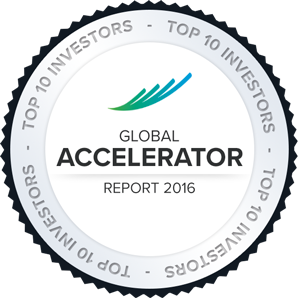
TOP 10 SEED ACCELERATORS
By capital invested
-
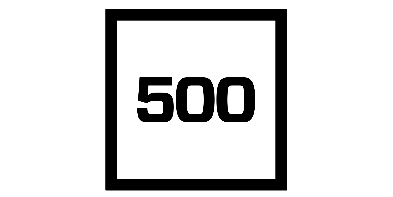
500 Startups
US$34,449,352
Worldwide | Private fund
-
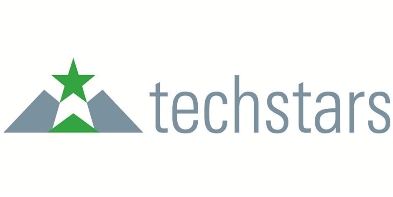
Techstars
US$28,079,014
Worldwide | Private fund
-
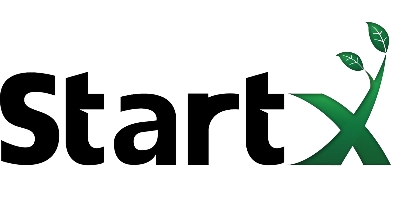
StartX
US$11,033,774
United States | Private fund
-
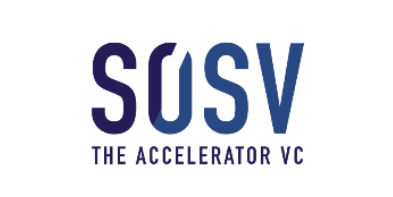
SOSV
US$7,889,074
Worldwide | Private fund
-
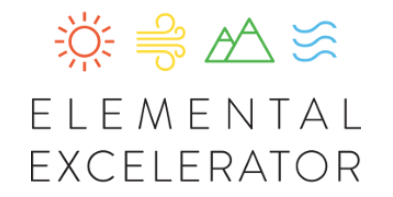
Elemental Excelerator
US$6,000,000
United States | Mix fund
-
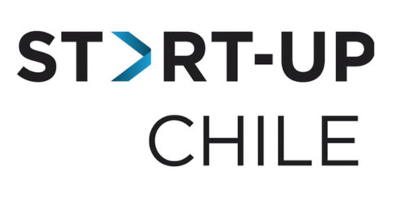
Start-Up Chile
US$5,082,410
Chile | Public fund
-
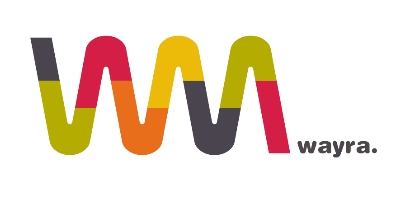
Wayra
US$4,537,683
Worldwide | Private fund
-
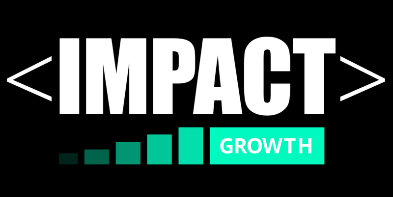
IMPACT Accelerator
US$4,245,847
Spain | Mix fund
-
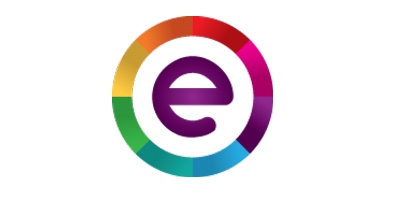
Entrepreneurs Roundtable Accelerator
US$4,100,000
United States | Private fund
-
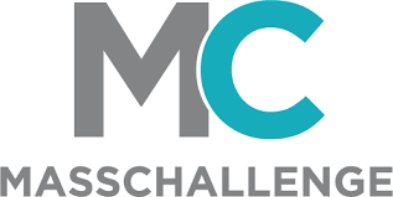
MassChallenge
US$2,200,000
Worldwide | Mix fund
Top seed accelerators ranked by cash amount invested into startups (excludes provided services, mentorship, coworking space, or follow-up investment).
This ranking is not a measure of the success or quality of these programs.
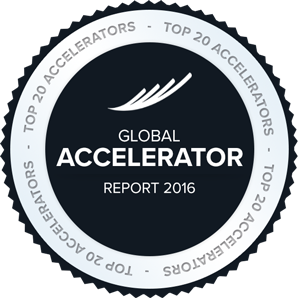
TOP 20 ACTIVE ACCELERATORS
By number of startups accelerated in 2016
-
-
Country
-
Accelerator
-
Startups accelerated in 2016
-
-
-

-
MassChallenge
-
376
-
-
-

-
500 Startups
-
278
-
-
-

-
Techstars
-
234
-
-
-

-
SOSV
-
179
-
-
-

-
Start-Up Chile
-
170
-
-
-

-
Etohum
-
165
-
-
-

-
MaGIC Global Accelerator Program (GAP)
-
140
-
-
-

-
EIT Digital Accelerator
-
130
-
-
-

-
Microsoft Accelerator
-
130
-
-
-

-
Tech Ranch Austin
-
130
-
-
-

-
Startup Mexico
-
128
-
-
-

-
Impulse Labs
-
127
-
-
-

-
StarTAU
-
120
-
-
-

-
Startup Aggieland
-
120
-
-
-

-
Startupbootcamp
-
118
-
-
-

-
New Ventures
-
117
-
-
-

-
Lemonade
-
116
-
-
-

-
NXTP Labs
-
111
-
-
-

-
NUMA
-
109
-
-
-

-
SEED SPOT
-
107
-
This ranking is not a measure of the success or quality of these programs.
HOT MARKETS
around the world in 2016
% of accelerators that reported an interest in investing in these markets in the next 12 months
-

Fintech
54.01%
-

Internet of things
53.31%
-

Big data analytics
51.74%
-

Saas
49.30%
-
Health
48.78%
-
Mobile apps
40.94%
-
Agritech
37.80%
-
E-commerce
37.80%
-
Education
37.46%
-
Cloud services
33.45%
-
Cleantech
31.71%
-
Wearables
31.36%
-
Drones
27.53%
-
Biotech
26.31%
-
Others
24.56%
-
Adtech
23.00%
-
Social media analytics
19.51%
-
Real estate
18.82%
THE LOCAL INSIGHT
How do you see the accelerator model evolving in the next couple of years?
-

-
Marvin Liao
500 Startups
Like all maturing industries, I believe we will see consolidation and specialization in accelerator programs. There will be a few top tier general programs and a lot of niche, verticalized industry-focused programs. Every other program in between will just shut down.
-


-
Bill Liao
SOSV
As the term accelerator becomes more crowded and blurred, winning brands will emerge to dominate certain verticals. Winners will be those who attract top talent and de-risk it successfully. Many poorly constructed accelerators are going to fail, and will take their investors' money with them, drawing capital out of the ecosystem. The key transformation will be the realisation of just how difficult it is to make any one accelerator a success, and capital will become concentrated in the experienced few accelerators that maintain successful year-by-year track records.
-


-


-
Andy Shannon
Startupbootcamp
Accelerators will continue to search for more ways to add value to their startups in the coming years. This may include evolving the standard 3-month program model, taking a more hands-on approach to supporting areas where founders typically struggle such as sales and PR, and working closer with corporations to improve collaboration with startups.
THE REPORT
-
1,458
Institutions contacted
74% more than 2015
-
683
Replies
36% more than 2015
-
579
Accelerators
32% more than 2015
-
68
Countries
10 more than 2015
